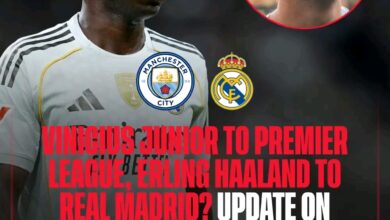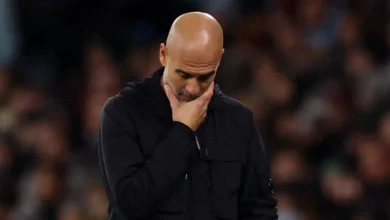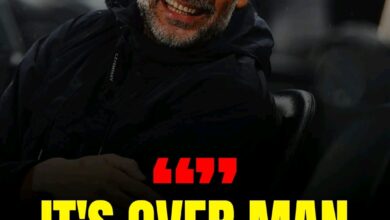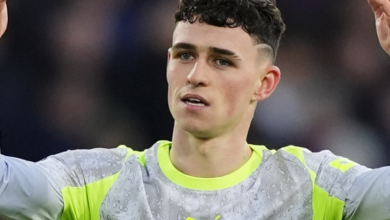Manuel Akanji solutions and FIFA Club World Cup plans – Every Word from part two of Pep Guardiola’s pre-Newcastle press conference
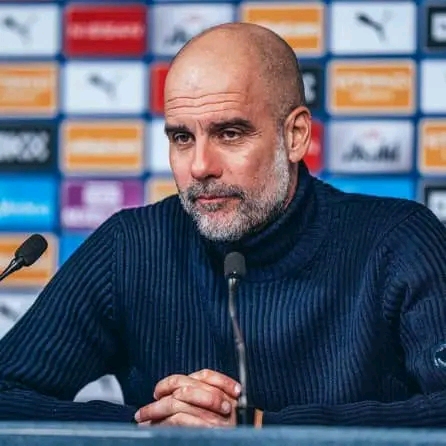
Pep Guardiola’s press conference before the Manchester City match against Newcastle United was filled with important insights and reflections, covering various aspects of the current state of the team. In part two of the address, Guardiola tackled several issues, including the team’s challenges, injuries, and the physical demands of the modern football schedule. The importance of Manchester City’s upcoming games was clear, as Guardiola discussed everything from the squad’s struggles to their approach to the FIFA Club World Cup.
One of the key talking points was the intense demands placed on players due to the crowded football calendar. Guardiola stressed that while injuries are inevitable over the course of a season, it’s the accumulation of games year after year that leads to fatigue. He emphasized that even the most stable teams, like Liverpool this season, experience similar challenges. For Manchester City, this year’s problems with injuries, such as those affecting Manuel Akanji, are a result of the physical toll that an ever-growing fixture list takes on players.
Guardiola pointed out that the solution to these issues lies in adjusting the football calendar itself. He has previously mentioned the need to address the increasing number of fixtures, but admitted that reducing the number of clubs in leagues or cutting down on competitions is unlikely to happen. While reducing the number of games would help, Guardiola highlighted the financial and logistical challenges, especially when clubs have such large squads. He joked that the only real solution would be to have 40 players in a squad, which, of course, is not financially sustainable for most clubs.
As Guardiola reflected on the injury struggles, he acknowledged that some of these issues are unavoidable due to the demanding nature of the sport. Players, particularly those like Kevin De Bruyne, who have played a lot of minutes over many seasons, face significant physical challenges as they get older. De Bruyne, for example, has been playing at the highest level for nearly a decade, covering long distances, and making significant physical efforts. But as players age, their bodies require more rest, and after extended injuries, they cannot simply bounce back to their previous levels. For example, after a lengthy injury layoff last season, De Bruyne is now 33, and Guardiola pointed out that the combination of age, injury recovery, and the physical demands of football meant that he was no longer able to perform at his previous levels.
Guardiola also spoke about the pressures players face when competing internationally. After a season with a long injury layoff, players like De Bruyne were immediately thrust back into action, only to face even more competitions, such as international tournaments, which add more strain to an already grueling season. Guardiola expressed that the modern football calendar and the lack of significant rest for players are the root causes of many injuries, including the ones affecting his own team. While Guardiola and his peers have tried to manage these challenges by rotating players and attempting to limit minutes, the sheer volume of matches remains a significant problem.
Guardiola also touched on the difficulties of squad rotation in such a tightly packed season. Due to the injuries and fatigue that have affected key players, Guardiola has been forced to rotate his squad more frequently than in previous seasons. In the past, City’s starting lineup was relatively stable, with only one or two changes from game to game. However, this season, due to the injuries and physical exhaustion players are dealing with, Guardiola has had to make more rotations, often resulting in a lack of consistency in the starting eleven.
The rotation policy has become a necessity rather than a strategy, as many players have been forced to play more minutes than usual. The emotional toll of losing matches in the final stages, particularly when leading, has made it even harder for players to maintain their focus and energy. Guardiola explained that this emotional fatigue is as much of a factor in the team’s struggles as physical exhaustion. Losing games like the recent one against Real Madrid, where City had a 2-1 lead and ultimately lost 3-2, takes a mental toll on players, leaving them feeling drained and demoralized.
Despite these challenges, Guardiola expressed his belief in the team’s resilience. He explained that the success of Manchester City in recent years, including winning four Premier League titles in a row and breaking numerous records, is something that sets the team apart. However, he acknowledged that this level of success has made it all the more difficult to accept the team’s current struggles. Guardiola recognized that the high standards set by the team over the years have created expectations that are difficult to meet, especially during a season marred by injuries and inconsistency.
Looking ahead to the upcoming match against Newcastle United, Guardiola reiterated the importance of focusing on one game at a time. The team’s recent form has not been good, and Guardiola is aware that they need to get back on track, especially with the competition for a top-four place in the Premier League heating up. After Chelsea’s defeat to Brighton, the pressure on City to maintain their position and secure Champions League qualification is even more intense.
Guardiola admitted that the upcoming clash with Newcastle is a crucial match for City, as they need to bounce back from recent disappointments. Despite the challenges, Guardiola believes that focusing on improving in every aspect of their game, from defending better to controlling possession more effectively, is the key to success in the coming matches.
In addition to the Premier League focus, Guardiola also addressed Manchester City’s upcoming participation in the FIFA Club World Cup. While Guardiola was unsure about the exact makeup of the squad for the tournament, he stated that the club would likely bring a mix of senior players and youth players from the academy. The FIFA Club World Cup offers an opportunity for City to secure another prestigious title, and Guardiola emphasized that it is important for the club both financially and in terms of prestige.
Guardiola further explained that the team would approach the tournament with the same intensity and focus as any other competition. While some players may be given extra time off to rest, the main goal is to ensure that the squad is prepared for the challenges ahead, both in the FIFA Club World Cup and in the final stretch of the Premier League season.
Pep Guardiola’s press conference before the Manchester City match against Newcastle United was filled with important insights and reflections, covering various aspects of the current state of the team. In part two of the address, Guardiola tackled several issues, including the team’s challenges, injuries, and the physical demands of the modern football schedule. The importance of Manchester City’s upcoming games was clear, as Guardiola discussed everything from the squad’s struggles to their approach to the FIFA Club World Cup.
One of the key talking points was the intense demands placed on players due to the crowded football calendar. Guardiola stressed that while injuries are inevitable over the course of a season, it’s the accumulation of games year after year that leads to fatigue. He emphasized that even the most stable teams, like Liverpool this season, experience similar challenges. For Manchester City, this year’s problems with injuries, such as those affecting Manuel Akanji, are a result of the physical toll that an ever-growing fixture list takes on players.
Guardiola pointed out that the solution to these issues lies in adjusting the football calendar itself. He has previously mentioned the need to address the increasing number of fixtures, but admitted that reducing the number of clubs in leagues or cutting down on competitions is unlikely to happen. While reducing the number of games would help, Guardiola highlighted the financial and logistical challenges, especially when clubs have such large squads. He joked that the only real solution would be to have 40 players in a squad, which, of course, is not financially sustainable for most clubs.
As Guardiola reflected on the injury struggles, he acknowledged that some of these issues are unavoidable due to the demanding nature of the sport. Players, particularly those like Kevin De Bruyne, who have played a lot of minutes over many seasons, face significant physical challenges as they get older. De Bruyne, for example, has been playing at the highest level for nearly a decade, covering long distances, and making significant physical efforts. But as players age, their bodies require more rest, and after extended injuries, they cannot simply bounce back to their previous levels. For example, after a lengthy injury layoff last season, De Bruyne is now 33, and Guardiola pointed out that the combination of age, injury recovery, and the physical demands of football meant that he was no longer able to perform at his previous levels.
Guardiola also spoke about the pressures players face when competing internationally. After a season with a long injury layoff, players like De Bruyne were immediately thrust back into action, only to face even more competitions, such as international tournaments, which add more strain to an already grueling season. Guardiola expressed that the modern football calendar and the lack of significant rest for players are the root causes of many injuries, including the ones affecting his own team. While Guardiola and his peers have tried to manage these challenges by rotating players and attempting to limit minutes, the sheer volume of matches remains a significant problem.
Guardiola also touched on the difficulties of squad rotation in such a tightly packed season. Due to the injuries and fatigue that have affected key players, Guardiola has been forced to rotate his squad more frequently than in previous seasons. In the past, City’s starting lineup was relatively stable, with only one or two changes from game to game. However, this season, due to the injuries and physical exhaustion players are dealing with, Guardiola has had to make more rotations, often resulting in a lack of consistency in the starting eleven.
The rotation policy has become a necessity rather than a strategy, as many players have been forced to play more minutes than usual. The emotional toll of losing matches in the final stages, particularly when leading, has made it even harder for players to maintain their focus and energy. Guardiola explained that this emotional fatigue is as much of a factor in the team’s struggles as physical exhaustion. Losing games like the recent one against Real Madrid, where City had a 2-1 lead and ultimately lost 3-2, takes a mental toll on players, leaving them feeling drained and demoralized.
Despite these challenges, Guardiola expressed his belief in the team’s resilience. He explained that the success of Manchester City in recent years, including winning four Premier League titles in a row and breaking numerous records, is something that sets the team apart. However, he acknowledged that this level of success has made it all the more difficult to accept the team’s current struggles. Guardiola recognized that the high standards set by the team over the years have created expectations that are difficult to meet, especially during a season marred by injuries and inconsistency
Looking ahead to the upcoming match against Newcastle United, Guardiola reiterated the importance of focusing on one game at a time. The team’s recent form has not been good, and Guardiola is aware that they need to get back on track, especially with the competition for a top-four place in the Premier League heating up. After Chelsea’s defeat to Brighton, the pressure on City to maintain their position and secure Champions League qualification is even more intense.
Guardiola admitted that the upcoming clash with Newcastle is a crucial match for City, as they need to bounce back from recent disappointments. Despite the challenges, Guardiola believes that focusing on improving in every aspect of their game, from defending better to controlling possession more effectively, is the key to success in the coming matches.
In addition to the Premier League focus, Guardiola also addressed Manchester City’s upcoming participation in the FIFA Club World Cup. While Guardiola was unsure about the exact makeup of the squad for the tournament, he stated that the club would likely bring a mix of senior players and youth players from the academy. The FIFA Club World Cup offers an opportunity for City to secure another prestigious title, and Guardiola emphasized that it is important for the club both financially and in terms of prestige.
Guardiola further explained that the team would approach the tournament with the same intensity and focus as any other competition. While some players may be given extra time off to rest, the main goal is to ensure that the squad is prepared for the challenges ahead, both in the FIFA Club World Cup and in the final stretch of the Premier League season.
Throughout the press conference, Guardiola stressed the importance of maintaining a positive mentality despite the team’s struggles. He pointed out that the team is composed of human beings who are going through difficult moments, but they must continue to fight and work hard. Guardiola recognized that the players’ ability to recover from tough losses and continue striving for improvement is what has defined the team over the years.
He also spoke about the importance of playing with confidence and staying true to the style of football that has brought Manchester City so much success in recent years. Guardiola acknowledged that the team is currently struggling to execute their usual style of play, particularly when it comes to keeping possession and controlling the tempo of matches. He explained that the team’s success has always been built on their ability to play attractive and possession-based football, but that this has been difficult to achieve in recent games. Despite this, Guardiola insisted that the team must continue to trust in their approach and not get discouraged by the current difficulties.
In the long term, Guardiola emphasized the need to learn from this challenging season. He acknowledged that the team must take responsibility for their performances and use this as an opportunity to grow. Guardiola remains determined to continue working with the squad to find solutions to the current problems and to ensure that the team returns to its previous level of performance.
As Guardiola concluded his press conference, he reiterated that this season’s challenges should not define Manchester City’s legacy. The club has achieved unprecedented success in recent years, and despite the current struggles, Guardiola believes the team still has the potential to turn things around. He remains committed to finding solutions, whether through tactical adjustments, improving player fitness, or managing player rotations more effectively.
Ultimately, Guardiola’s message was one of resilience and acceptance. The team must learn from the difficulties they have faced this season and use those lessons to continue progressing. While Manchester City is undoubtedly going through a tough period, Guardiola is confident that the players can overcome these challenges and return to the high standards that have made them one of the top teams in world football.
This season may not be going as planned, but with Guardiola at the helm, Manchester City will continue to fight for every point, every title, and every opportunity to prove that they belong among the best in the world.
and Resilience
Throughout the press conference, Guardiola stressed the importance of maintaining a positive mentality despite the team’s struggles. He pointed out that the team is composed of human beings who are going through difficult moments, but they must continue to fight and work hard. Guardiola recognized that the players’ ability to recover from tough losses and continue striving for improvement is what has defined the team over the years.
He also spoke about the importance of playing with confidence and staying true to the style of football that has brought Manchester City so much success in recent years. Guardiola acknowledged that the team is currently struggling to execute their usual style of play, particularly when it comes to keeping possession and controlling the tempo of matches. He explained that the team’s success has always been built on their ability to play attractive and possession-based football, but that this has been difficult to achieve in recent games. Despite this, Guardiola insisted that the team must continue to trust in their approach and not get discouraged by the current difficulties.
In the long term, Guardiola emphasized the need to learn from this challenging season. He acknowledged that the team must take responsibility for their performances and use this as an opportunity to grow. Guardiola remains determined to continue working with the squad to find solutions to the current problems and to ensure that the team returns to its previous level of performance.
As Guardiola concluded his press conference, he reiterated that this season’s challenges should not define Manchester City’s legacy. The club has achieved unprecedented success in recent years, and despite the current struggles, Guardiola believes the team still has the potential to turn things around. He remains committed to finding solutions, whether through tactical adjustments, improving player fitness, or managing player rotations more effectively.
Ultimately, Guardiola’s message was one of resilience and acceptance. The team must learn from the difficulties they have faced this season and use those lessons to continue progressing. While Manchester City is undoubtedly going through a tough period, Guardiola is confident that the players can overcome these challenges and return to the high standards that have made them one of the top teams in world football.









